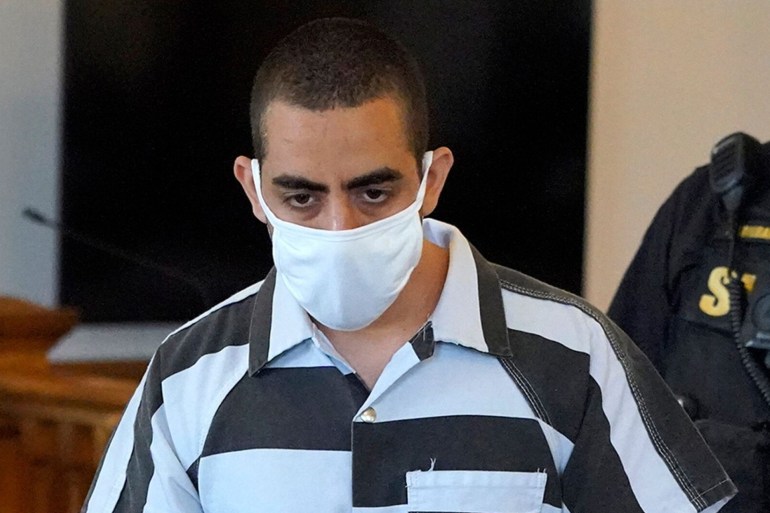The head of the "City of Asylum" group, Henry Reis, on Sunday gave his testimony about the moments of the attack on the British writer of Indian origin, Salman Rushdie, who close to him confirmed that he had a long time before recovering, even though doctors removed his respirators earlier.
Reese, who was in the process of interviewing Rushdie at a seminar in New York, said that he initially thought that someone was doing a bad prank, but he realized the truth of the matter when he saw the blood.
A young American of Lebanese origin, Hadi Matar, stabbed Rushdie in several parts of his body, injuring him in the liver and the eye.
Reports linked the attack to the fatwa of the late Iranian leader, Ayatollah Khomeini, with the killing of Rushdie, in response to his publication of the novel "The Satanic Verses" in the eighties, which includes insults to Islam and the Noble Prophet Muhammad, peace be upon him.
Reese, who was also wounded in the attack, said that he did not realize until moments later that what was happening was an attack, explaining, "It was very difficult to understand. It looked like a bad prank," noting that "it didn't seem real."
Reese appeared on CNN with a large bandage covering his swollen and bruised right eye.
He said that when a man rushed to the podium he thought the order was just a "bad sign" of Khomeini's bloodshed fatwa and that the order was "not a real attack."
"But after blood (stain) formed behind him, it became a reality," he added.
Reese added that he was in the process of talking to Rushdie about the "City of Asylum" movement, which is concerned with protecting freedom of expression, which he said he founded, influenced by a speech Rushdie gave in 1997.
In the same context, the agent of the British writer Salman Rushdie confirmed on Sunday that he "is starting to recover," noting that his recovery will take "a long time, as his injuries are serious, but his condition is developing in the right direction."
The writer's son, Zafar, confirmed that the family was "extremely relieved" that Rushdie gave up his breathing apparatus and was able to "say a few words."
Hadi Matar, the perpetrator of the attack on Salman Rushdie, pleaded not guilty to the charge of "attempted murder" (Associated Press)
Trial Procedure
In the context, the attacker appeared before a judge in the state of New York, where he pleaded not guilty to the charge of "attempting to kill" the British writer.
Hadi Matar, 24, was wearing a prisoner's suit and wearing a mask in a procedural session in front of the Chautauqua court, where he is being prosecuted for "attempted murder and assault", and he did not say a word, according to the New York Times and photos published by the local press.
The suspect, who resides in New Jersey, has pleaded his innocence through his lawyer, and will appear again in court on August 19.
Earlier, NBC New York reported that a preliminary law enforcement review of Matar's accounts on social media showed that he had "extremist Shiite tendencies", and he expressed sympathy with the Iranian Revolutionary Guards, although no specific links were found between them.
The network stated in its report that Matar was born in California and recently moved to New Jersey, adding that security forces found a false driver's license with him.
In Lebanon, Ali Tuhfa, the mayor of Yaroun (southern Lebanon), said that the suspect is the son of a man from the town, and added that the suspect's parents immigrated to the United States, where he was born and raised.
Asked whether the suspect or his parents belonged to Hezbollah, Tuhfa said he had absolutely no information about their political views.
An official in the Lebanese Hezbollah said that they did not have any additional information about the stabbing incident, "and therefore we will not issue any comment."
It is noteworthy that Salman Rushdie was born on June 19, 1947 in Bombay, and grew up in a family of wealthy Muslim intellectuals.

